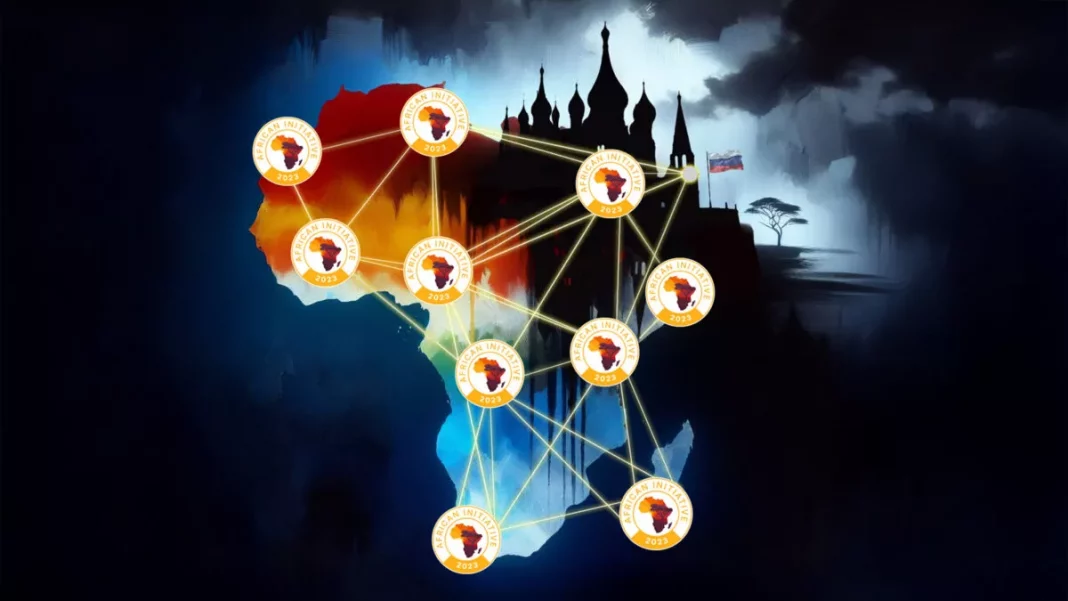By EUvsDisinfo
The Kremlin has steadily expanded its foreign information manipulation and interference (FIMI) operations globally. We have tracked their footprint across the EU neighbourhood, especially Ukraine, Moldova and Georgia, but increasingly also across Africa. The challenge to map and expose Russian FIMI operations is immense. The European External Action Service (EEAS) is working with like-minded allies and partners to build a comprehensive understanding of the FIMI threat and engage in joint exposure to raise public awareness of Russian influence operations.
So, on 12 June, the EEAS together with the French Service for Vigilance and Protection against Foreign Digital Interference (VIGINUM) and the Foreign, Commonwealth and Development Office (FCDO) of the United Kingdom, published a joint technical report exposing the FIMI activities of the African Initiative, a Russian news agency that operates on the African continent.
A news agency façade for a FIMI operation
The African Initiative, contrary to what the name seems to suggest, is not African at all. The initiative is, in fact, almost entirely Russian. The so-called news agency is actually run by a Russian national Artem Sergeevich Kureev, who has allegedly been linked to a Russian intelligence service. The European Union has recognised this outfit’s active role in conducting FIMI operations targeting African audiences to undermine the security and stability of the EU. Both African Initiative and its editor-in-chief Kureev are now subject to EU restrictive measures.
A shift toward Africa
Since Russia’s full-scale invasion of Ukraine on 24 February 2022, the Kremlin’s information operations have also pursued a strategic reorientation toward Africa. This shift, formalized in the Russian Federation’s 2023 Foreign Policy Concept, is marked by a strengthened focus on information influence operations across the African continent. This is security policy, not a media undertaking.
Initially, Russia’s strategy combined overt and covert approaches. The overt component relied on state-controlled pro-Kremlin outlets such as RT (Russia Today) and Sputnik. Moscow also set out to expand its soft power influence through the allegedly cultural cooperation agency Rossotrudnichestvo activities, increase the footprint of the Russian Orthodox Church on the continent and even develop video games that covertly peddle pro-Kremlin disinformation narratives to unsuspecting players.
Rise from the ashes of Wagner
The covert dimension centred around Project Lakhta—an influence operation launched in 2013 by Yevgeny Prigozhin, the late head of the Wagner Group. Following Prigozhin’s death in 2023, Russia undertook a comprehensive restructuring of its networks in Africa. According to a New York Times investigation, control of Project Lakhta returned to the Russian Foreign Intelligence Service (SVR). The Wagner Group may have appeared to dissolve in the wake of Prigozhin’s self-inflicted demise, but it was in fact merely re-branded as the Africa Corps, with the Russian military intelligence agency (GRU) assuming oversight over the Group’s footprint across Africa.
The prime target of this joint report – the African Initiative – was one of the most visible Russian FIMI assets that emerged as a result of the restructuring and reorganisation of the former Wagner Group. According to this report, as well as other reliable investigations, this so-called news agency appears to be state-directed and is staffed by individuals with alleged ties to Russian intelligence services and remnants of Prigozhin’s network. Therefore, its mission, much like that of its predecessors, is to sustain and expand Russia’s presence in Africa by building upon previous disinformation and information manipulation campaigns.
How does it work?
The African Initiative operates both digitally and physically. On the ground, it creates associations to mobilize local influencers, journalists, and activists to propagate Russian propaganda messages and disinformation among African populations. One of the most notable examples is the creation of an affiliated association in Burkina Faso, which has become a central hub for Russian influence on the continent.
The African Initiative also employs covert digital strategies to broaden its reach, targeting English and French speaking audiences in Africa. One such example of covert techniques to amplify its content is dubbed as “AI-Freak” in the joint report. Initially detected by Meta and OpenAI under the name of StopNews, this infrastructure uses fictitious news sites and inauthentic accounts on several platforms to spread pro-Kremlin disinformation narratives to African audiences. Notable techniques include the use of AI-generated multimedia content and unethical search engine optimization techniques, to manipulate online visibility and engagement. This report exposes the covert links between the “AI-Freak” and African Initiative.
Growing awareness
We have already reported on the African Initiative in our 3rd Report on FIMI threats earlier this year, but this latest report adds to a growing awareness and understanding of how Russia expands its global influence and how the Kremlin deploys FIMI far beyond Russia’s borders. The analysis by the three teams involved in this report has identified the African Initiative as playing a pivotal role in Russia’s FIMI activities.
Don’t be deceived.
By EUvsDisinfo





